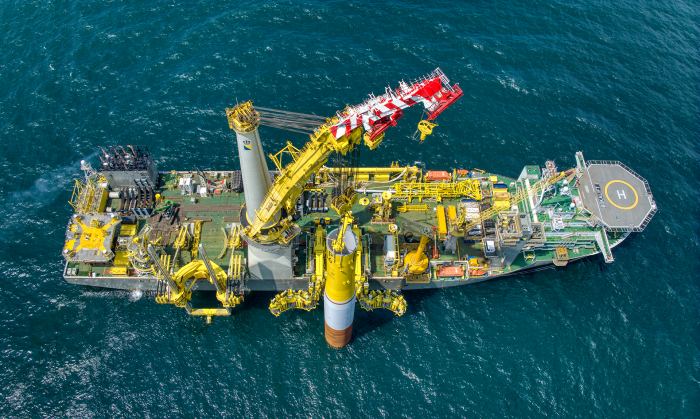Preventing a major environmental disaster that could take place any day. It is common practice for the salvors of Boskalis subsidiary SMIT Salvage, who saved hundreds of ships and their cargoes over the past decades. Last summer they carried out a very uncommon operation off the coast of Yemen in the Red Sea, where a nearly 50-year-old floating storage and offloading facility (FSO) carrying 180 million liters of oil had been rusting away for many years.
Since 1987, the floating storage and offloading facility (FSO) Safer has been moored off the west coast of Yemen in the Red Sea. Shortly after the civil war broke out in Yemen, the crew abandoned the ‘storage tanker’, with 1.14 million barrels of light crude oil on board, bringing maintenance to a virtual standstill. The single-hulled tanker fell into disrepair. The result: the Safer was transformed into a ‘ticking time bomb’ with a serious risk of an explosion or a large-scale oil spill with disastrous humanitarian and environmental consequences. A ship-to-ship transfer – where oil is pumped from one tanker to another tanker – was the one and only solution.
In 2021, the United Nations (UN) got in touch with Boskalis subsidiary SMIT Salvage with the aim of working out a salvage plan together and preventing a humanitarian and environmental disaster. More than two years later, the UN managed to reach an agreement with all parties involved that allowed the salvage operation to go ahead thanks to funding from a large number of countries. In the Waalhaven in Rotterdam, Boskalis’ multipurpose support vessel Ndeavor was fitted out with a crane, and all the required salvage equipment and the gear such as pipes, hoses and pumps to complete the ship-to-ship transfer.
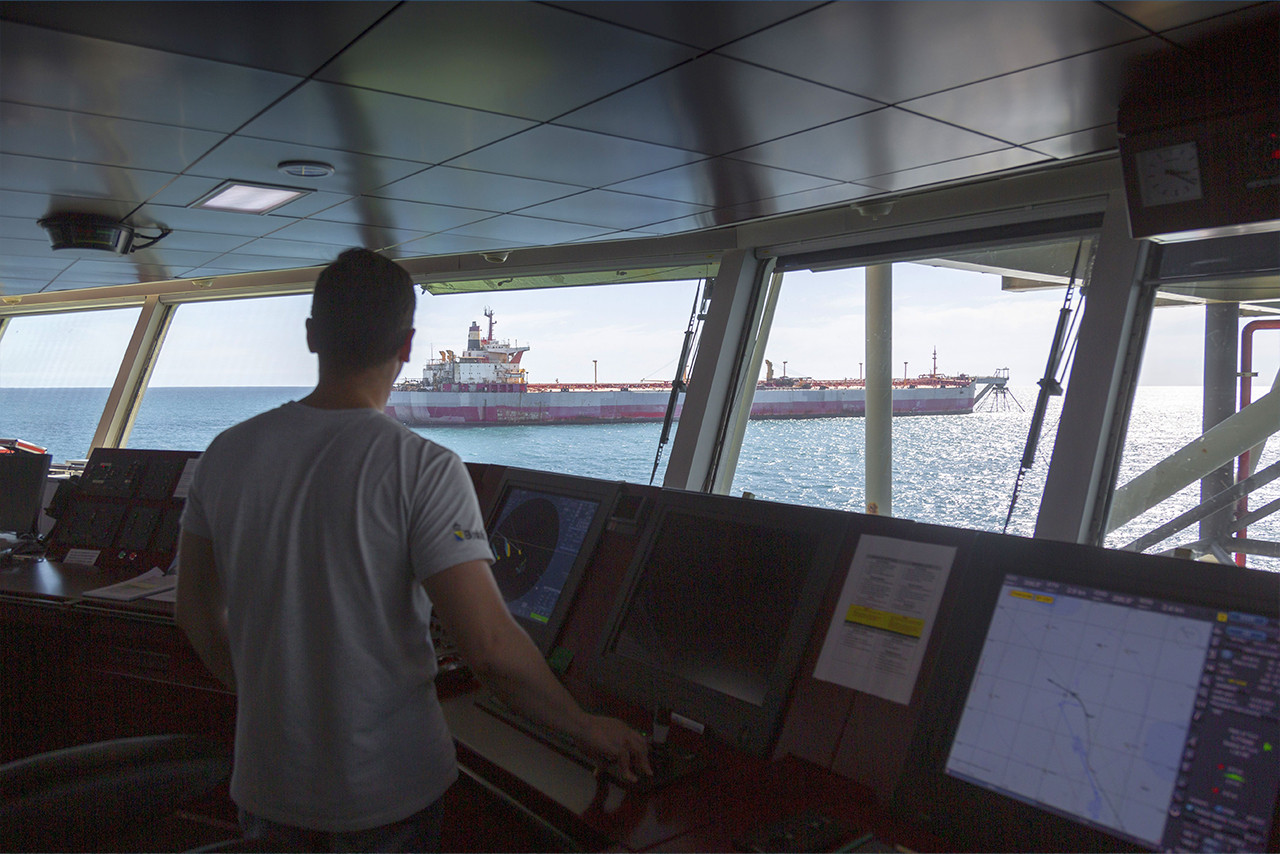
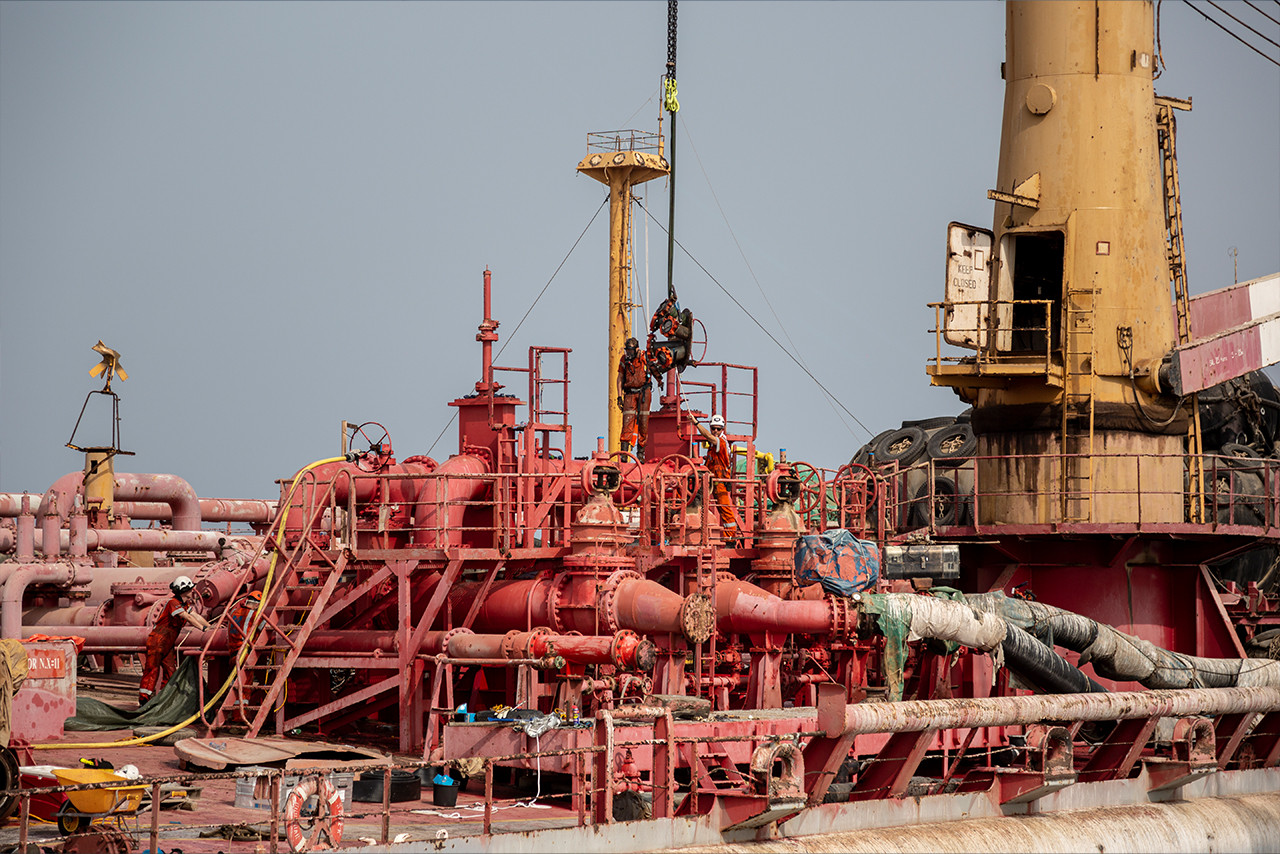
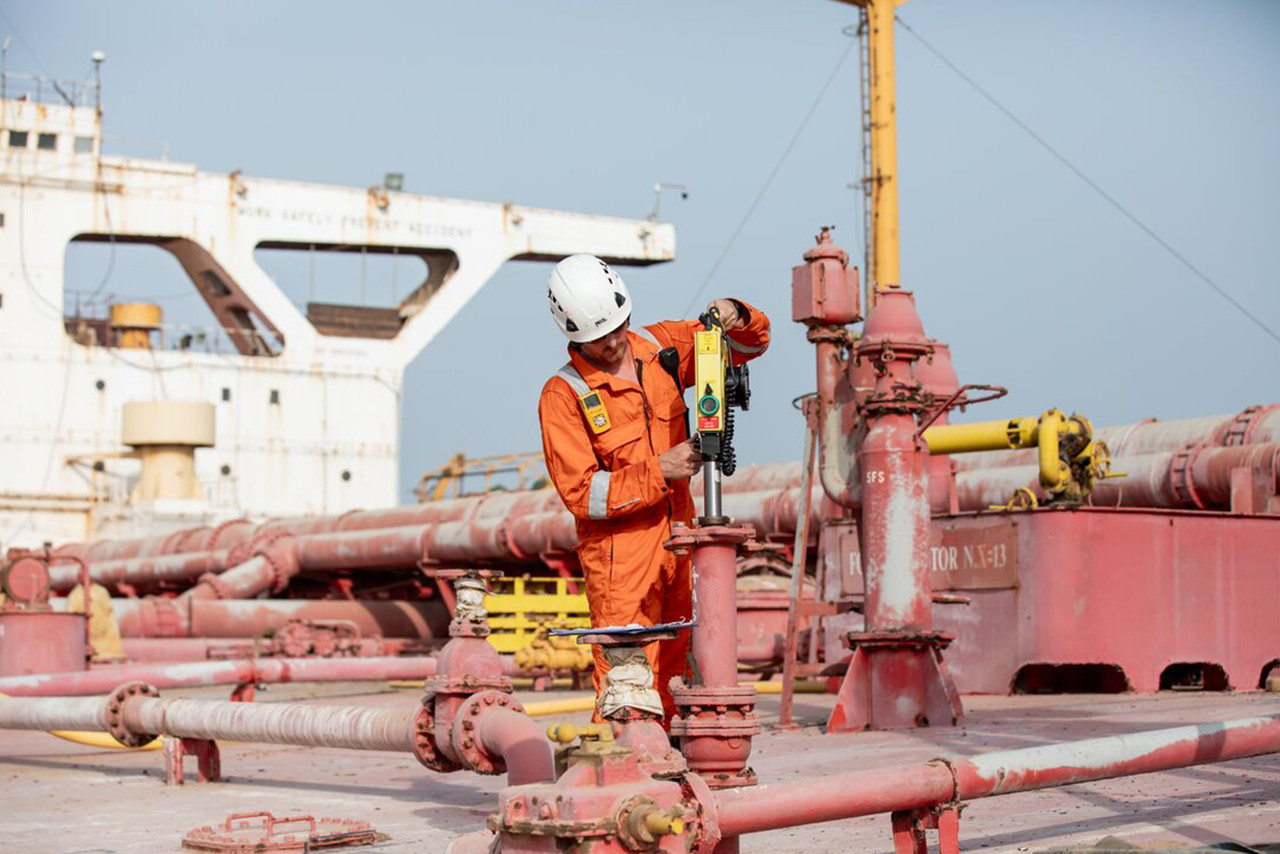
Unknown
Via Djibouti, where the salvage crew went on board, the Ndeavor set sail for Yemen, where it moored alongside the FSO Safer. Once they were on the Safer, the experts immediately completed several gas measurements with the aim of issuing the ‘safe to access’ certificate needed before the salvage operation could begin. The quality of the oil was also inspected in view of the safe transfer to the replacement tanker, as were the pump room and engine room in order to determine the extent to which the equipment on board the old FSO could still be used. “We fixed the inevitable leaks in the inert gas pipes on board during that phase, and devised a plan to use the existing pipelines on board as little as possible because we didn’t know how reliable they were,” says senior salvage master Jan Willem Duit. “The lack of familiarity with the vessel was the main technical challenge on this project. Because while our work is never standard, we can often get on board in advance to come up with a plan. But in this case, that wasn’t an option because of the tense political situation in Yemen.”
The conclusion after the initial visits to the vessel was positive, says fellow senior salvage master Wytse Huismans. Particularly because our colleagues had assumed the worst-case scenario before we left in order to avoid any unpleasant surprises upon arrival. “We immediately started installing our inert gas generators on the stern. Then we broke into the Safer’s own inert gas pipeline network, which was better than expected. That meant we had complete control and could further reduce the oxygen levels in the small number of tanks where it was higher. As soon as we entered the Safer, everything went quite quickly. And so we soon reached the point when we could start pumping the oil to the Yemen, the replacement vessel formerly known as the Nautica that was bought by the UN specifically for this job.”
United Nations
The salvage of the Safer was conducted under the flag of the United Nations: a collaboration of 193 countries that financed the project and liaised with the internationally recognized Yemeni government and the de facto authority (DFA). Huismans: “You know beforehand that you’re going to a country where a civil war is going on. So initially, you try to size up the situation on the ground and the emotions going around. As long as you don’t fully understand what’s going on, the stressful moments just get more stressful,” he says. “The situation in the country made this salvage operation challenging for us because of the involvement of a range of parties and people. A lot of time and energy went into that. By drawing up clear rules and being open and transparent about how and why we took specific steps, we did manage to make the people trust our good intentions.”
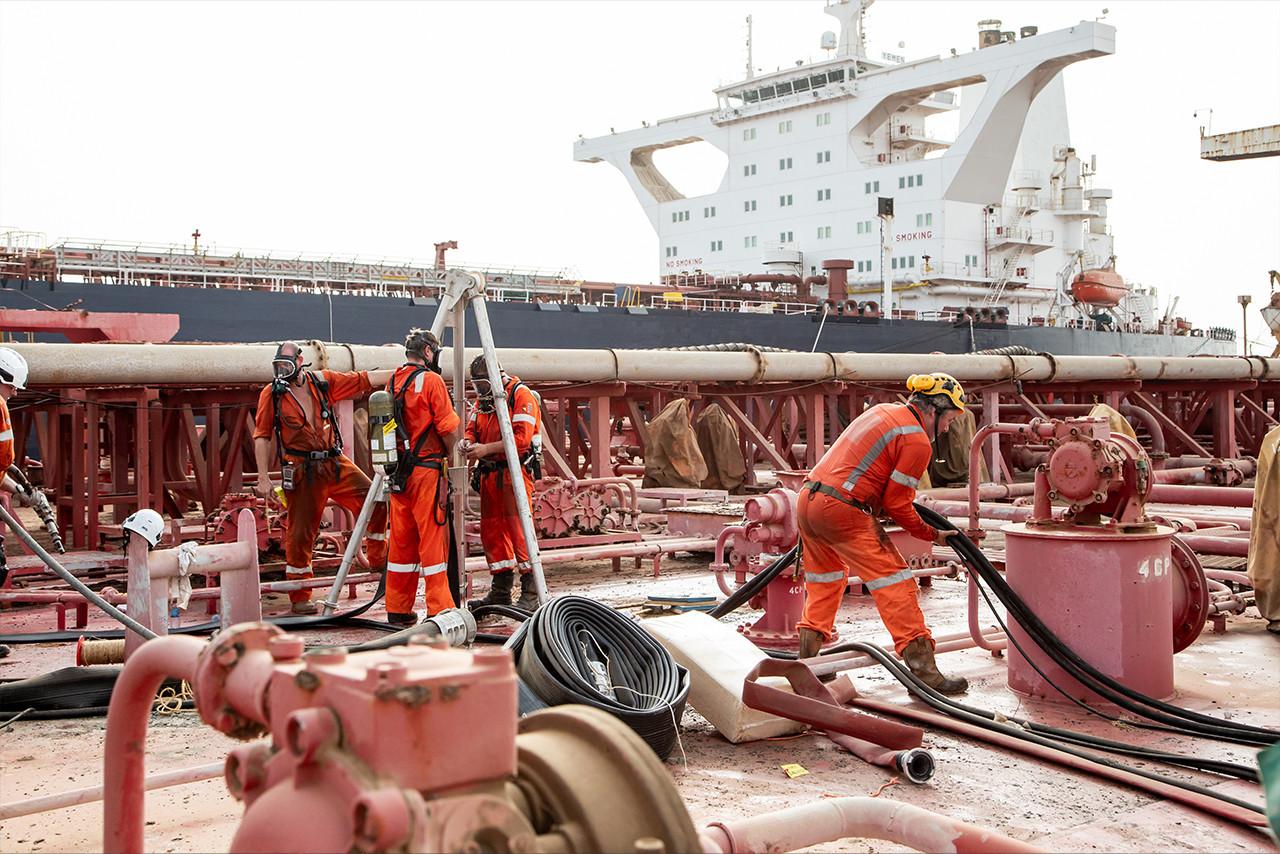
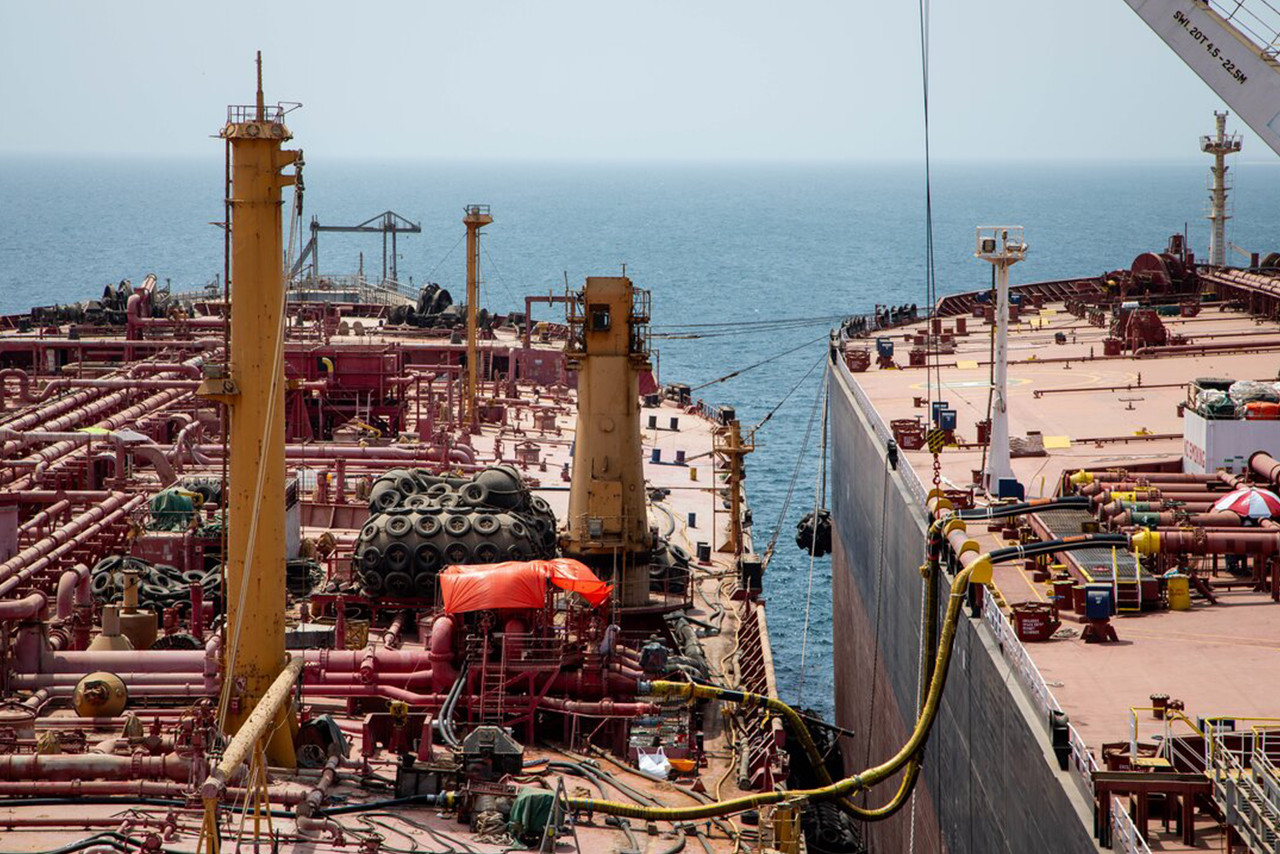
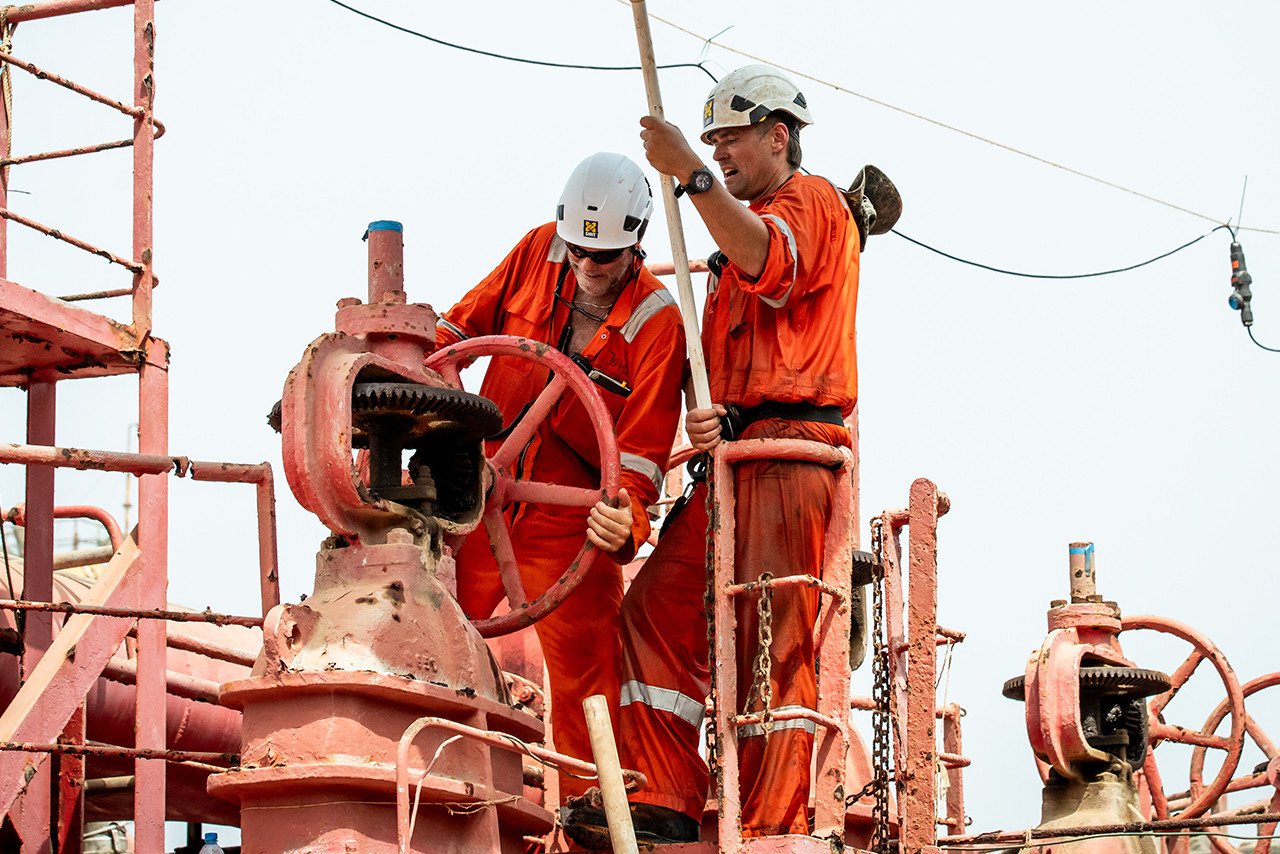
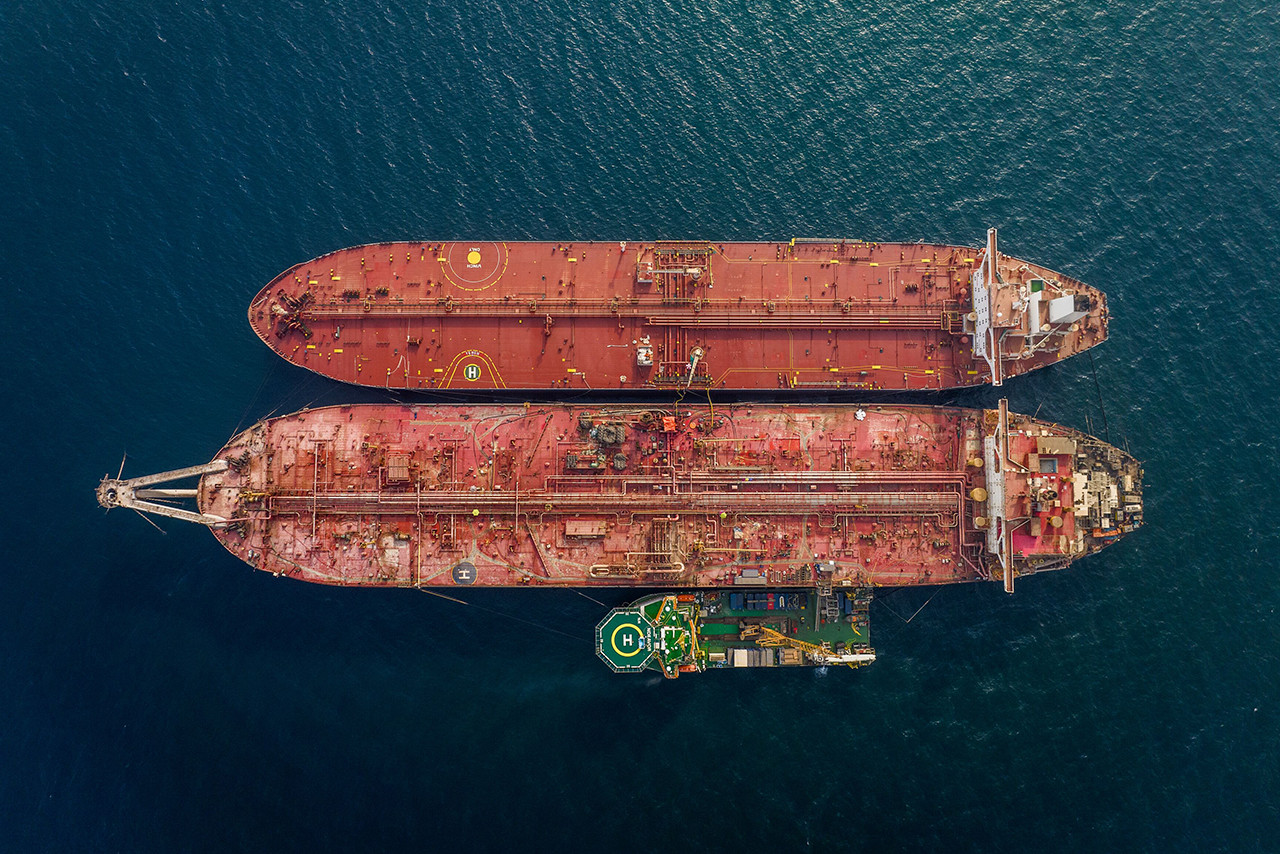
On Monday, 28 August, after successfully completing the ship-to-ship transfer of the 1.1 million barrels of oil, the Ndeavor left the area in Yemen. “It’s unique and wonderful that we have the assets at Boskalis to mobilize for a job like this and then execute it professionally. Particularly since this is a project that was a focus of considerable concern in almost the entire world,” says Duit. Huismans: “I’m happy we took on this project, and that we completed it successfully to the satisfaction of the client. As Boskalis, we have a reputation to maintain given the salvage projects we have been privileged to execute recently. And we succeeded.”
